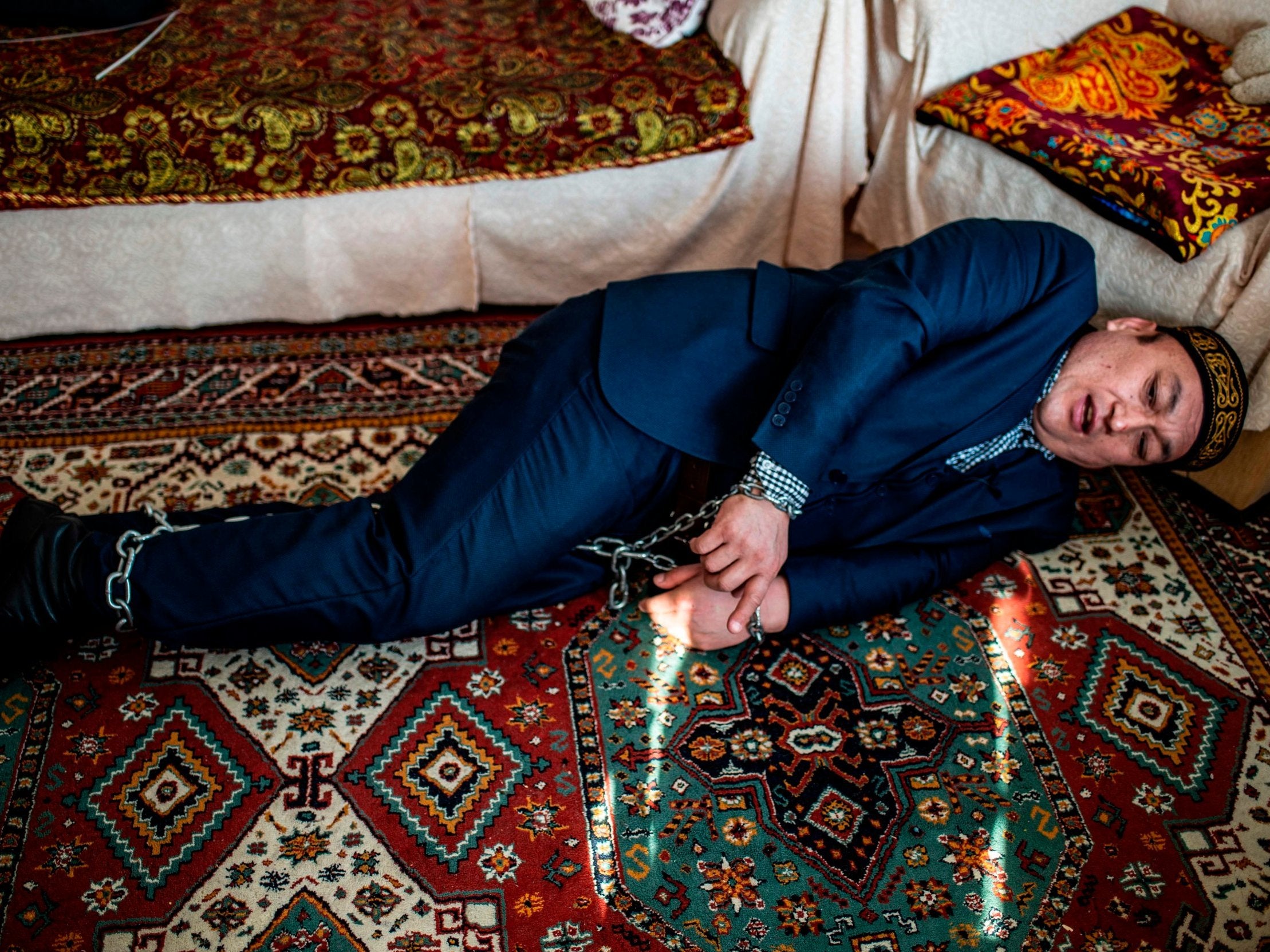Uighur Muslims forbidden to pray or grow beards in China's 're-education' camps, former detainee reveals
Omir Bekali says he was almost driven to suicide during his detention in Xinjiang province
Your support helps us to tell the story
From reproductive rights to climate change to Big Tech, The Independent is on the ground when the story is developing. Whether it's investigating the financials of Elon Musk's pro-Trump PAC or producing our latest documentary, 'The A Word', which shines a light on the American women fighting for reproductive rights, we know how important it is to parse out the facts from the messaging.
At such a critical moment in US history, we need reporters on the ground. Your donation allows us to keep sending journalists to speak to both sides of the story.
The Independent is trusted by Americans across the entire political spectrum. And unlike many other quality news outlets, we choose not to lock Americans out of our reporting and analysis with paywalls. We believe quality journalism should be available to everyone, paid for by those who can afford it.
Your support makes all the difference.Muslims imprisoned in China’s “re-education camps” are forced to eat pork and banned from praying or growing beards, according to a former inmate.
Omir Bekali said the treatment of Uighurs and other ethnic minorities in the Xinjiang province was designed to strip them of their religious beliefs.
Called "students", by the authorities, Mr Bekali said that prisoners were forced to line up facing a wall and sing the Chinese national anthem for half an hour every morning.
“I never really wanted to sing, but because of the daily repetition, it sinks in,” he told the Hong Kong Free Press. “Even a year later, the music is still resonating in my head.”
More than a million Uighurs have been detained in Xinjiang province, in what China claims is a clampdown on religious extremism and terrorism.
International concern over conditions in the camps prompted Sweden to announced on Thursday that it would grant refugee status to Uighur Muslim asylum seekers
Mr Bekali was born in Xinjiang to Uighur and Kazakh parents but moved to Kazakhstan for work in 2006.
He said he was arrested when he returned to the province in March 2017 and locked up in prison on charges of aiding “terrorism”.
After seven months he was transferred to a re-education camp in Karamay where he said he was chained.
Every Friday, when Muslims traditionally pray, detainees were made to eat pork, which is prohibited by Islam’s religious restrictions, he said, adding that inmates were forbidden to pray or grow a beard, both of which were seen as a sign of extremism.
The only language allowed in the camp was Chinese, he said.

When Mr Bekali refused to follow orders, he was forced to stand at a wall for five hours at a time.
He claimed he was later sent to solitary confinement and deprived of food for 24 hours.
“The psychological pressure is enormous, when you have to criticise yourself, denounce your thinking – your own ethnic group,” he said in a separate interview last year. “I still think about it every night, until the sun rises. I can’t sleep. The thoughts are with me all the time.”
This week China responded to growing international criticism by issuing a lengthy report claiming it had detained 13,000 terrorists and broken up hundreds of “terrorist gangs” in Xinjiang.

Join our commenting forum
Join thought-provoking conversations, follow other Independent readers and see their replies
Comments